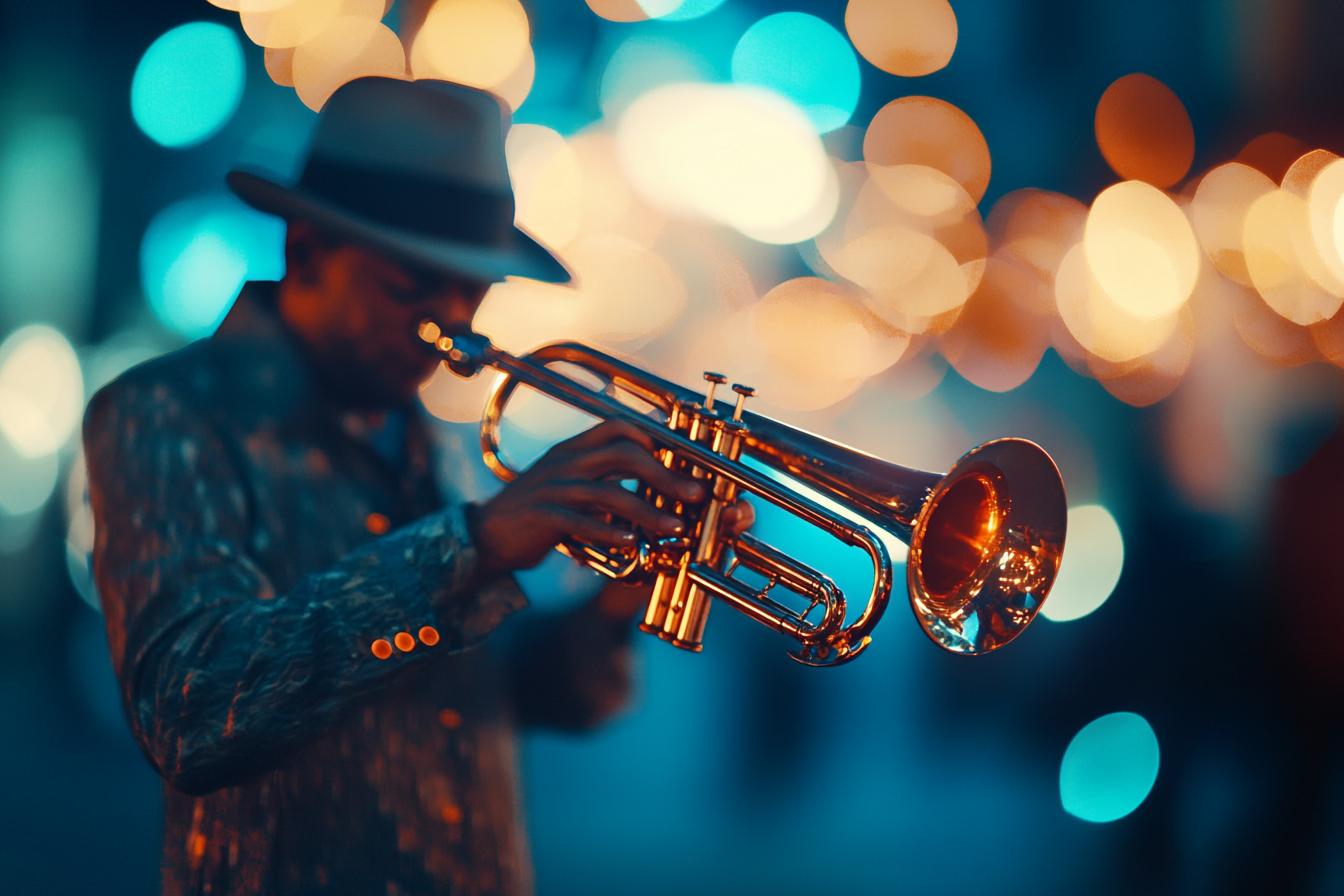Radio played a pivotal role in shaping the trajectory of jazz music, serving as a powerful platform for its dissemination and evolution. The emergence of radio broadcasting in the 1920s provided a crucial avenue for jazz musicians to reach a wider audience, transcending geographical boundaries. Radio stations like WJZ in New York and WGN in Chicago became hubs for live jazz performances, showcasing the talents of legendary figures like Louis Armstrong, Duke Ellington, and Count Basie. These broadcasts introduced jazz to millions of listeners across the country, fostering a national appreciation for the genre and contributing to its cultural significance. It is no wonder that many jazz musicians consider radio to be a defining force in their careers, recognizing its ability to connect with audiences in a unique and intimate way.
Beyond broadcasting live performances, radio also played a crucial role in promoting the recording industry and the development of jazz standards. Radio stations frequently played recorded jazz music, introducing listeners to new artists and tunes. This exposure led to increased demand for recordings, fueling the growth of the record industry and solidifying the status of certain jazz songs as enduring classics. Imagine, for instance, the power of hearing a soulful rendition of “Take the ‘A’ Train” by Duke Ellington’s orchestra on the radio, instantly captivating your imagination and prompting you to seek out more of his music. Radio’s impact on jazz music was profound, leaving an enduring legacy that continues to resonate today.

Jazz Music Influencers
1. Jazz Music Influencers
Jazz music influencers are individuals who have a significant impact on the genre, shaping trends, fostering creativity, and inspiring new generations of musicians. These individuals can be musicians, critics, educators, or even fans with a passionate following. They use their platforms to promote jazz, share knowledge, and connect with audiences. Whether through performances, reviews, teaching, or social media engagement, jazz influencers contribute to the continued evolution and appreciation of this vibrant musical tradition.
The influence of jazz music influencers can be seen in various ways. They may introduce new artists to wider audiences, advocate for specific subgenres, or champion innovative musical approaches. They also play a crucial role in preserving jazz history and tradition by sharing stories and insights about its legendary figures. Through their dedication and passion, jazz music influencers ensure that the genre continues to thrive and inspire generations to come.
2. Pioneers of the Genre
Jazz, a vibrant and improvisational genre, owes its existence to a diverse group of talented musicians who dared to break free from traditional musical norms. Early pioneers like Louis Armstrong, a virtuoso trumpet player, revolutionized jazz with his charismatic stage presence and innovative improvisational skills. His infectious energy and masterful use of blues influences helped define the genre’s signature sound. Alongside Armstrong, Jelly Roll Morton, a pianist and composer, laid the groundwork for jazz’s rich harmonic structure and complex arrangements. He masterfully blended ragtime and blues elements, creating a sophisticated musical language that captivated audiences. These early pioneers paved the way for future generations of jazz musicians.
The influence of these early innovators extended beyond the musical realm. They created a cultural space where African American musicians could express themselves freely and challenge societal norms. Jazz became a powerful symbol of liberation and cultural expression, attracting a devoted following across racial and socioeconomic lines. As the genre evolved, musicians like Duke Ellington, a bandleader and composer, further expanded its reach, crafting sophisticated compositions that pushed the boundaries of musical expression. Ellington’s band, renowned for its elegant arrangements and dynamic performances, became a cultural icon, showcasing the power and beauty of jazz on a global stage.
3. Innovators and Experimenters
Jazz music thrives on innovation and experimentation. Throughout its history, brilliant musicians have pushed boundaries and redefined the genre. These bold artists have incorporated elements from other musical styles, embraced new technologies, and explored unconventional approaches to improvisation. From the early days of ragtime and blues to the avant-garde movements of the 20th century, jazz musicians have consistently challenged norms and expanded the sonic possibilities of their art form. This constant pursuit of the new has kept jazz dynamic, exciting, and ever-evolving.
These innovators have left an indelible mark on jazz. Their pioneering work has inspired generations of musicians, who in turn, have continued to build upon their legacy. Jazz’s history is filled with stories of artists who dared to break the mold, taking risks and forging new paths. Their willingness to experiment has enriched the genre beyond measure, making jazz a vibrant and endlessly fascinating art form.
4. Cultural Impact and Legacy
Jazz music’s impact transcends the realm of music, deeply influencing American culture and beyond. The genre’s improvisational spirit and rhythmic energy resonated with the spirit of the 20th century, fostering a sense of freedom and self-expression. Jazz became a soundtrack for social change, reflecting the struggles and triumphs of African Americans and inspiring a generation of artists across various disciplines. Moreover, jazz’s global reach fostered intercultural exchange, enriching musical landscapes worldwide and solidifying its place as a universal language.
Jazz’s legacy continues to shape the world today. Its influence can be seen in countless genres, from rock and roll to hip hop, demonstrating its enduring power. The genre’s embrace of improvisation and its focus on community continue to inspire musicians and audiences alike. Jazz remains a vibrant and evolving art form, constantly pushing boundaries and challenging conventions, ensuring its lasting impact on the cultural landscape.
5. Influence on Other Genres
Jazz’s impact extends far beyond its own boundaries, shaping and inspiring a vast array of musical styles. From the cool, sophisticated sounds of bebop influencing modern classical compositions to the fiery energy of fusion rock incorporating jazz improvisation, the influence of jazz is undeniable. The rhythmic complexity and improvisational spirit of jazz have found their way into rock, pop, and even electronic music, enriching these genres with a unique sense of spontaneity and expression.
Moreover, jazz’s influence can be seen in the development of other musical forms. The blues, for instance, owes a significant debt to jazz, particularly in the areas of harmony and improvisation. The rhythmic innovations of jazz also helped shape the development of Latin music, contributing to the complex and vibrant rhythms that characterize genres like salsa and mambo. Jazz has served as a catalyst for musical innovation, pushing the boundaries of genre and inspiring countless artists to explore new and exciting sonic territories.
6. Contemporary Jazz Influencers
The world of jazz continues to evolve, and contemporary artists are pushing the boundaries of the genre in exciting new ways. These musicians draw inspiration from a wide range of sources, including hip-hop, electronic music, and world music, and they are not afraid to experiment with different sounds and styles. This eclectic approach has led to a resurgence of interest in jazz, especially among younger audiences who are attracted to the genre’s energy and innovation.
Many contemporary jazz musicians are also active on social media, where they connect with fans and share their music and ideas. This has helped to build a strong community of jazz enthusiasts who are eager to discover new artists and explore the genre’s rich history. These musicians are also actively involved in educational programs, inspiring the next generation of jazz musicians and ensuring that the genre’s legacy will continue for years to come.
Conclusions
So, there you have it! Jazz, a musical genre that started with a bang and continues to evolve with every passing generation. From the early pioneers who laid the foundation to the contemporary artists pushing boundaries, jazz has always been a force of innovation. It’s not just about the music itself; jazz has had a huge impact on culture, influencing everything from literature and art to fashion and even politics. And let’s not forget how it’s inspired countless other genres, making its presence felt in everything from rock and pop to hip-hop and electronic music. The story of jazz is a story of creativity, resilience, and a spirit that keeps on pushing forward. So next time you hear a jazz tune, take a moment to appreciate its rich history and its enduring influence on the world.
